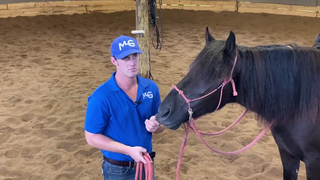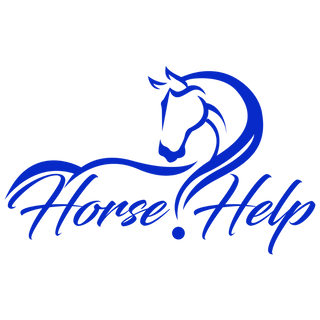Horse Training
-

Breaking Up Pace Using The Respect Series With Smokey Day 1
In this training session, Michael Gascon works with Smokey, a naturally pacey gaited horse, using his foundational Respect Series to improve softness, control, and gait. By focusing on groundwork, stop-and-backup...
-

Do's And Don'ts Of 12th Grade - Speed Transitions
Speed transitions on a gaited horse are all about clarity, consistency, and timing. In this training session, Michael Gascon demonstrates how to create smooth, responsive transitions from slow gait to...
-

6th Grade - Q & A
In this 6th Grade Q&A clinic, horse trainer Michael Gascon answers real questions about stopping techniques, turning on green horses, halter fit, and riding bitless. He shares practical tips to...
-

What To Do When Your Horse Fails 1st Grade
When your horse fails "first grade" training, it’s not a failure—it’s a chance to adapt your approach. In this session, Michael Gascon works with Smokey, a stiff and resistant horse,...
-

Using A Breeching For Gait Work
Did you know a breeching can help your gaited horse move with better collection and balance? In this post, Michael Gascon explains how this traditional mule tack, when fitted correctly,...
-

Paso Specific Bits
Curious about the unique tack used in Paso Fino training and competition? In this informative guide, Michael Gascon breaks down the Paso-specific bits, hackamores, and double-rein setup that...
-

Backing & Side Passing Using The Respect Series With Monty Day 2
In this session from Michael Gascon’s Respect Series with Monty, we dive into the step-by-step process of teaching horses to back and side pass with softness and precision. Through consistent...
-

Do's And Don'ts Of 1st Grade - Undivided Attention
First Grade training, as taught by Michael Gascon, focuses on developing undivided attention and respect through intentional groundwork—not traditional lunging. By using proper hand positions, close proximity, and clear body...
-

Intro To Roping
Learning to rope may seem intimidating, but with the right fundamentals, anyone can master it—no matter your age or experience. In this beginner-friendly guide, you'll discover how to handle a...
-

Equine Affaire Clinic - Gait, Gait, Gait
In this clinic recap, Michael Gascon shares practical techniques for improving softness, balance, and consistency in gaited horses. He explains how controlling the head leads to better body control, why...
-

Working Through Extreme Obstacles With Nakaia Day 1
In this Day 1 training session with Nakaia, Michael Gascon demonstrates how to turn fear into focus by building respect through foundational groundwork and clear communication. By reinforcing softness in...
-

Bits Intro Video #2
In this deep dive into Part 2 of Michael Gascon’s bit series, we explore how bit design affects communication, responsiveness, and training efficiency. Michael explains why pressure isn’t about punishment—it’s...













